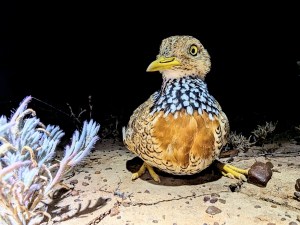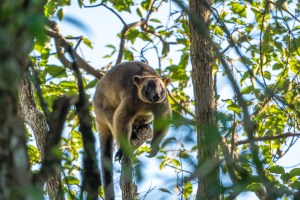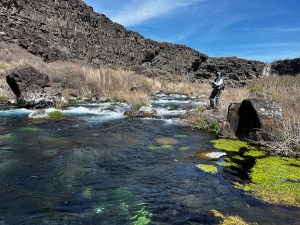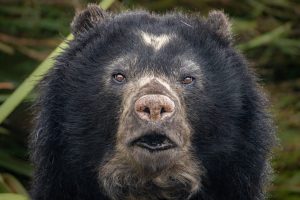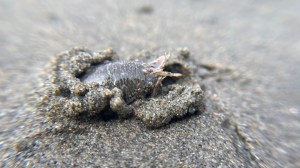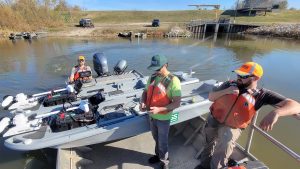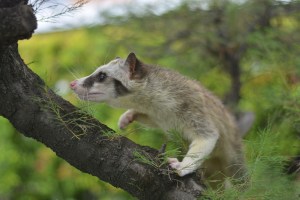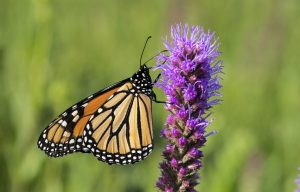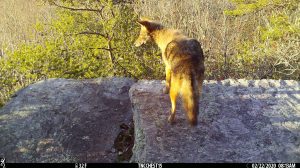Discover stories in Biodiversity
Protecting the Plains-wanderer, Australia’s Odd Inland Shorebird
Grazing lands can help protect one of the most unique — and endangered — birds in the world: the Australian plains-wanderer.
California Quail: Encounters with a Suburban Gamebird
Many bird species are declining, but the California quail is thriving in farm fields and suburbia of the western United States. Here’s a look at the life and times of this charismatic bird.
Meet the Kangaroos That Live in Trees
Tree-kangaroos are one of the world’s most bizarre and fascinating mammals.
Exploring Idaho’s Thousand Springs Region
Crystal clear springs in southern Idaho, a legacy of Nature Conservancy protection efforts, are home to endemic species and offer outstanding recreational opportunities.
Meet the Spectacled Bear: South America’s Only Bear
South America’s only bear species is under threat from habitat loss, fragmentation, and hunting. Scientists are working hard to study—and protect—this remarkable species.
The Overlooked Biodiversity of Appalachian Caves
The cave habitats of Tennessee and Kentucky have species that most will never see. Here are some of the unusual creatures found there.
Meet the Mole Crab, a Common and Surprising Beach Creature
Get up close with a fascinating crustacean you can find (and catch) on your next trip to the beach.
A Kayak in Search of a Fish
In a historic Illinois wetland, a team tackles invasive carp using uncrewed small boats
Meet the Civet, the Mammal Behind the Coffee
Beyond the coffee, how much do you know about civets? They are incredibly cool mammals you really should know.
Chasing Unicorns: A Photographer’s Journey Documenting Rhino Conservation
Photographer Ami Vitale travels to Kenya to cover the translocation of 21 endangered northern white rhinoceros to TNC partner Loisaba Conservancy.
Pit Stops on the Monarch Flyway: Arkansas Partnership Benefits Pollinators
Restoring pollinator habitat on TNC Preserves to provide critical stops for monarch butterflies to nest and feed.
Camera Trap Chronicles: Rattlesnakes and Howling Coyotes
And more. Coming to you from TNC's Bridgestone Reserve in central Tennessee.
